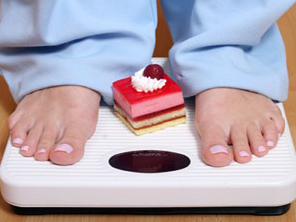
HOW TO HANDLE YOUR EMOTIONS
All of us experience a wide range of emotions in our lives. Usually, that’s a good thing. But sometimes we have difficulty controlling our emotions, even to the point of letting our emotions control our behavior. Usually, that’s not such a good thing. Here are some helpful suggestions for handling your emotions.
• Be honest with yourself.
• Talk to somebody about your feelings.
• Don’t ignore your emotions, they are telling you something.
• If you are having an unpleasant feeling, think of something you can do that will help, and then do it.
• Find positive ways to express anger that are not hurtful to others.
• Remember, whatever you are feeling, you’re not alone.
• Try not to get overwhelmed, things usually improve.
• If you do get overwhelmed—ask for help.
Sometimes it helps to get your feelings down on paper. Here are some ideas for writing that may help you deal with your emotions so you don’t turn to emotional overeating:
1. Write about a time when you felt like you had to hide your emotions. Have you ever tried to hide them even from yourself?
2. Describe one or two times when you had big emotional mood swings.
3. Describe a time when you felt like you were mad at the world. Were you really mad at the whole world, or just one or two things? Did you figure it out?
4. Who do you talk to when you are feeling down? What does this person do that helps? Do you ever do the same for others?
5. Have you ever felt like you are totally alone and no one else could possibly understand what you’re feeling?
Do you think other people sometimes feel that way too?
6. Watch a television program and write about one of the characters. What were the major emotions that motivated that character’s behavior? How did the character deal with those emotions? Did this character handle his/her emotions in a positive or negative (helpful or harmful) way? Can you think of a better way?
7. Imagine that some day you will have a child. Write a letter of advice for that child to read when he or she reaches the age you are right now. Tell the child about the moods and emotions you experienced at this age, and how you hope he/she will deal with his/her own moods and emotions at this age.
Filed under: Uncategorized | Tagged: ask for help, be honest with yourself, binge eating help del mar, binge eating help orange county, binge eating orange county, binge eating san diego county, deal with your emotions, eating in secret oc, eating in secret san diego county, emotional overeating carmel valley, emotional overeating dana point, emotional overeating laguna niguel, emotional overeating north county san diego, emotional overeating san diego, emotional overeating san diego county, emotional overeating southern california, encinitas, encinitas emotional overeating, encinitas overeating, encinitas stress eating, find positive ways to express anger, Florida, handle your emotions, healthy ways to deal with emotions, how do you deal with your emotions, Hypnosis Palm Harbor, hypnosis pinellas county, Hypnosis Saint Petersburg, overeating carmel valley, overeating encinitas, overeating help carmel valley, overeating southern, stress eating orange county, talk to someone about your feelings, the hungry heart laguna niguel, try not to be overwhelmed, write feelings down on paper, yo yo dieting carmel valley, yo yo dieting encinitas, yo yo dieting pinellas county, yo yo dieting san diego county, yo yo dieting southern california, yo yo dieting the hungry heart, you are not alone | Leave a comment »



 Emotional eating, overeating and holiday stress—is this a combination you know well? Feeling stressed and overwhelmed by holiday demands and hectic schedules and giving in to the temptation of too many Fourth of July goodies is something many of us struggle with during a busy time when it can be hard to make our self care and needs a priority. If you are struggling with emotional overeating, especially this time of summer, contact us at
Emotional eating, overeating and holiday stress—is this a combination you know well? Feeling stressed and overwhelmed by holiday demands and hectic schedules and giving in to the temptation of too many Fourth of July goodies is something many of us struggle with during a busy time when it can be hard to make our self care and needs a priority. If you are struggling with emotional overeating, especially this time of summer, contact us at 


 5 minute Lunches
5 minute Lunches

